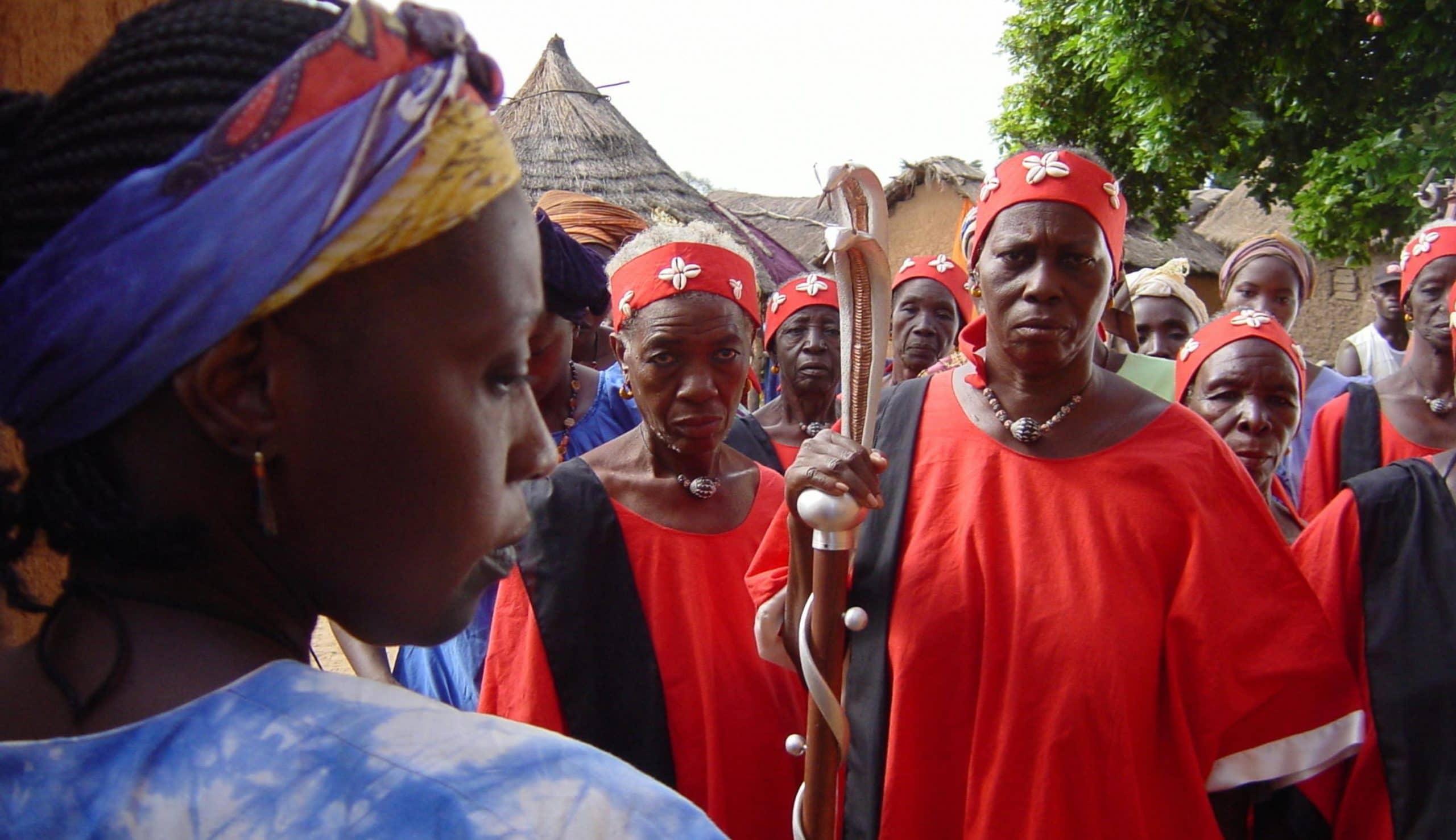Ousmane Sambène makes a daring and important statement against female genital mutilation and speaks for the necessity of change and modernization
Moolaadé (2004)
Written and directed by Ousmane Sembène. Starring Fatoumata Coulibaly, Maimouna Hélène Diarra, Salimata Traoré, Dominique Zeïda, Mah Compaoré and Théophile Sowié.
According to the World Health Organization, more than 200 million girls and women alive today in 30 countries in Africa, Asia and the Middle East have undergone female genital mutilation, a harmful set of procedures that consist of partial or total removal of the external female genitalia for non-medical reasons and can cause severe bleeding, infections, complications in childbirth and the risk of newborn deaths. It has no health benefits and is recognized internationally as a violation of the human rights of girls and women. Written and directed by Senegalese filmmaker Ousmane Sembène, Moolaadé is an important film that exposes the absurdity of such practices, arguing for a necessity of change when it comes to these barbaric traditions and making it clear that the problem lies in a deep-rooted gender inequality.
Set in a colorful Burkina Faso village where men live with their several wives and children in clay houses that have no doors, the film begins when four girls escape the circumcision rite (or “purification”) and ask Collé Gallo Ardo Sy (Fatoumata Coulibaly) for protection. Collé is the second of her husband’s three wives and also refused ten years before to have her daughter Amasatou (Salimata Traoré) circumcised. To help the girls, she casts a “Moolaadé,” a “magical protection” indicated by a symbolic rope that prevents the women elders who carry out the practice (the Salindana) from entering the house. It can only be revoked by Collé herself, and her husband’s relatives want to persuade him to publicly whip her into revoking it.
It shouldn’t be surprising that those who are most supportive of the girls’ mutilation are the men of the village, who represent the status quo and insist that “purification dates from back” and is required by Islam (a very questionable claim). They bear gifts and nice clothes for the “purified” girls and reinforce the outrageous myth that a “bilakoro” (uncircumcised) woman smells bad, cannot have children and therefore is unfit for marriage. Sembène shows the women’s submission in several moments, like when Amasatou kneels in the presence of two men or when the elders’ council decide to confiscate and burn the women’s radios for thinking that they teach them to be subversive and to believe in the idea of equality.
The men make it quite clear that their wives are not equal, giving them permission to do only what they men consider acceptable and demanding Collé’s husband to “tame her” with a whip. The women accept to follow the traditions, resigned (“It will be said you inspired them,” one of them says to the eldest wife of Collé’s husband, to convince her to return the girls). They receive money for the mutilation of their children and don’t fight back when their children die of this dangerous procedure (one of the girls fled because her sister had died). Moolaadé is very direct when showing the horrors of being a woman in such a place, and the actors do a great job to make us angry that things like that exist.
Sembène directs his film in a way that makes it feel like a documentary, with the use of natural light and never drawing attention to himself — even when he indulges in something a bit more fantastic, like when the girls see the Salindana as frightening masked creatures surrounded by a blue fog. The yellowish cinematography emphasizes hot colors, yet there is also a nice use of a blue filter in a horrific moment that shows a girl screaming before being mutilated. But the most revealing moment in Moolaadé, however, is when we see the mutilation of a child in parallel with a sex scene, which creates an evident association between the violence committed against the body of a girl and a mutilated woman who seems like being raped when having sex.
With a clever script that uses the character of the merchant Mercenaire (Dominique Zeïda) as a moral compass (he is outraged by the way Collé is treated by her husband and calls a pedophile a man who would marry an 11-year-old girl), Moolaadé offers us a peek into an almost alien reality. There is a hierarchy of wives in each house and apparently no secrets (there are no doors, people just walk in without knocking). We see a woman licking a battery to see if it can still be used for her radio, and one kilogram of bread is measured as a unity (one kilogram is one bread, apparently). There is a huge anthill and a clay mosque in the village too, and Sembène makes all these details fascinating.
But what is most fascinating (and ironic) is how Collé manages to stop people from carrying out a barbaric tradition that is based on a stupid belief by making use of another belief — a “magical protection” for the girls. It all leads to a relatively optimistic ending that may feel a bit naïve but is certainly necessary. The last scene is in fact extremely telling in its cry for modernization. Let’s only hope that more people will watch this film and understand that there should be no space in our times for horrendous practices that only diminish and bring harm to women.





